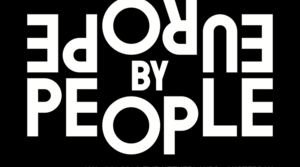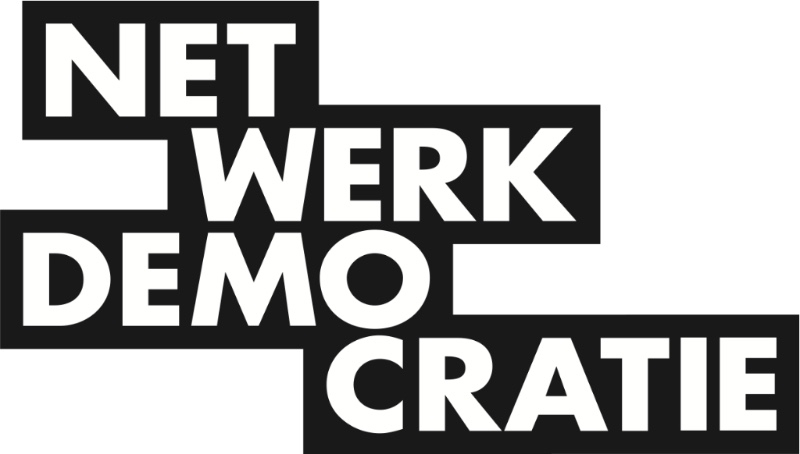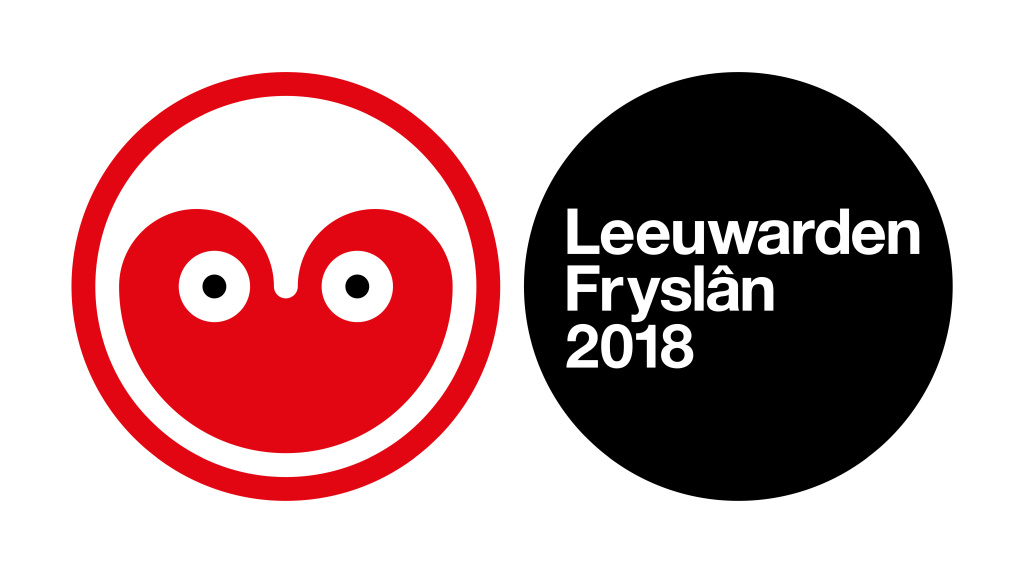Recommendations for the EU Urban Agenda
Report by Anne de Zeeuw
Photo by Maarten van Haaff.
“Whenever you involve citizens and you start co-creating solutions with them, you end up with solutions you never thought of.”
In the evening of 25 February and as part of ECF’s involvement in the cultural programme of the Netherlands Presidency of the EU Council, we hosted an event to co-create recommendations of good urban governance for the EU Urban Agenda at Pakhuis de Zwijger in Amsterdam. Speakers included Antonija Eremut (Solin, Croatia), Christian Iaione (Bologna, Italy), Sjoerd Feitsma (Leeuwarden, the Netherlands), Pedro Campos Ponce (Dutch Ministry of the Interior and Kingdom Relations).
Christian Iaione’s quote accurately summarises the discussion and highlights ECF’s efforts to raise awareness about cultural participatory practices as new models of civic-public partnerships to improve democratic legitimacy.
Photo by Maarten van Haaff.
The experiences from Solin, Leeuwarden and Bologna brought new perspectives on good urban governance to add to the recommendations for the EU Urban Agenda. Most important were the focus on process rather than goal, the value of experimentation, and the varied new set of values and roles which result from co-creation between citizens and governments. The implementation of these insights in the EU Urban Agenda will help to set the right priorities in European urban regulation for the coming years.
We have refined the recommendations based on the audience's input:
- Do not look for best practices, but look for best processes
- Go for the experiment and be open to change
- Change from command and control to service designers
- Be open to different stakeholders
Chistian Iaione. Photp by Maarten van Haaff.
Recommendation 1: Do not look for best practices, but look for best processes
An important insight of this evening was that although cities throughout Europe share the same challenges, the context within a particular city is too different to be able to implement ready-made solutions. Senior Associate for Development Projects Antonija Eremut from Solin, Croatia emphasised we cannot simply copy-paste a successful model of co-creation. Best practices of co-creation that worked in one place can have adverse effects in another situation; instead more attention should be given to the process of such collaborative governance. Also in Bologna Christian Iaione, founder of think-tank LabGov, aims to promote Bologna - not as a best practice but as a ‘best process’, which could help co-design a best process in another city by sharing steps, mistakes and solutions. It is in fact this process that needs to be valued for the unexpected result it can generate. This leads to the next recommendation.
Moderator Natasja van den Berg with Antonija Eremut and Sjoerd Feitsma. Photo by Maarten van Haaff.
Recommendation 2: Go for the experiment and be open to change
When there is not one best model to follow, the steps along the way should constantly be re-imagined and reinvented. It is exactly this openness to change, which - according to Sjoerd Feitsma, Alderman of Cultural Affairs in Leeuwarden - makes it possible to connect with the movements in society that demand change. Another important characteristic of the experiment is that it enables a solution-based approach. Only by experimenting on the ground policy-makers can see the reactions, motivations of the people involved and the possible problems it encounters. Such a process and experimentation oriented form of co-creation takes time, but as Antonija Eremut replied it is exactly the process itself that is valuable. According to Christian Iaione also the solutions that result from it are more valuable. Not taking time for experimentation leads to a quick solution that you cannot implement either because of opposition or because it was not well thought through. This is the ‘cost of impatience’ as Iaione put it. Experimentation on the ground together with citizens allows for a solution-based approach that actually lies close to the real life of citizens. Consequently, there is no need for more regulations, but a need to redefine regulations so that they are based on the interests of society. The co-design of the bidbook that made Leeuwarden Cultural Capital 2018 is a nice example of the success of such a different mindset. Christian Iaione calls this ‘re-moulding’ our rules so they fit in the transition we are in. The result of experimentation is therefore not a new set of regulations but a toolkit of guidelines which can lead to new governance devices.
Antonija Eremut. Photo by Maarten van Haaff.
Recommendation 3: Change from command and control to service designers
The fun thing about such co-designing processes with citizens is that it also leads to more effective policies, because the policies are self-implementing. As Christian Iaione explained, implementation is already embedded in this process of co-designing policy.
"Therefore bureaucrats, and civil servants, need to change their roles and skills, they don’t need to just be rules and knowledge bearers, they need to start working together with the citizens, they need to be service designers, which means they need to know people, they need to know the kind of attitudes that people have.” –Christian Iaione
Changing the process of governance also calls for redesigning the internal city government. Involving citizens in the process decreases the need for tools of command and control and instead calls for a transformation of the city government towards a ‘citizen enabling system’.
An important factor in these changing roles is trust. As Sjoerd Feitsma mentioned these new modes of urban governing need to place more trust in citizens. This means that in the future there will still be a need for rules, but also a need to let go and be more flexible in order to come to innovative solutions.
Sjoerd Feitsma. Photo by Maarten van Haaff.
Recommendation 4: Be open to different stakeholders
Experimental co-creation inevitably involves different stakeholders, different scales and different themes. This is also the main focus of the EU Urban Agenda by creating new partnerships between cities throughout Europe and trying to involve their experiences to come to new policies on urban governance. According to EU Urban Policy Advisor Pedro Campos Ponce, citizens, businesses, and public authorities create the city together. On the one hand co-creation between citizens and government means to involve citizens by downsizing governance to the level of the neighbourhood, but on the other hand partnership should also be extended to every stakeholder involved. Sjoerd Feitsma mentioned that co-creation takes the form of a network of people that works together to find solutions. Therefore, very different cultural and economic themes can be drivers for co-creation. A lesson to be learned is that urban governance does not simply come from the state apparatus; it can also be generated through cultural awareness on urban issues and better education on the effect of urban processes. If for example the bidbook of Leeuwarden had been a governmental project it would have missed certain urgencies. This shows that involving citizens can make culture an important driver for innovative and more effective urban governance.
Pedro Campos Ponce responds to an audience member, next to Christian Iaione, Sjoerd Feitsma and Antonija Eremut. Photo by Maarten van Haaff.
What are your recommendations?
During the evening, we also presented the Build the City, Towards a Practice-Based Manifesto that highlights 23 models of civic-public partnerships and provides recommendations to energise urban governance in the EU Urban Agenda. The conversation continues on our dedicated Build the City Manifesto lab on ECF Labs where you can add your own recommendations.
Further resources:
Below you can:
- Watch the video of the event
- Listen to the audio recording
- Browse the image gallery
- Download the Manifesto with the 23 Good Practices
- Learn more about the speakers
A selection of photos from the event (all photos by Maarten van Haaff):
Read the 23 existing Good Practices on innovative civic-public partnership practice.
About the speakers
Antonija Eremut has demonstrated with the City of Solin in Croatia, that citizens can work together effectively to reclaim public space that had been abandoned.
Christian Iaione, founder of the think-tank Laboratory for the Governance of Commons (LabGov) is pioneering in Italy with students, citizens and the city government on institutional innovation, of which the Bologna’s Regulation for the Care and Regeneration of Urban Commons has been the most impactful.
Sjoerd Feitsma, Alderman Leeuwarden. Leeuwarden-Fryslân, European Cultural Capital in 2018 has convinced the jury of the European Cultural Capital with their topic ‘mienskip’ (= community) that participation of communities and culture are driving engines for socio-economic development in Europe.
Pedro Campos Ponce of the Dutch Ministry of the Interior and Kingdom Relations is leading the process towards the EU Urban Agenda of which good urban governance, including citizens’ participation is one of the priorities.
Our partners
The European Cultural Foundation has organised this event in collaboration with Europe by People, Kunsten ’92, Leeuwarden – Fryslân 2018 European Capital of Cultural, Netwerk Democratie and Pakhuis de Zwijger.
Together with Netwerk Democratie and Pakhuis de Zwijger, we organise New Democracy, a series of events on democratic and cultural renewal in Europe from a citizen’s perspective. The series is part of the Europe by People programme and FabCity campus, in the framework of the Dutch Presidency from January – July 2016.
























